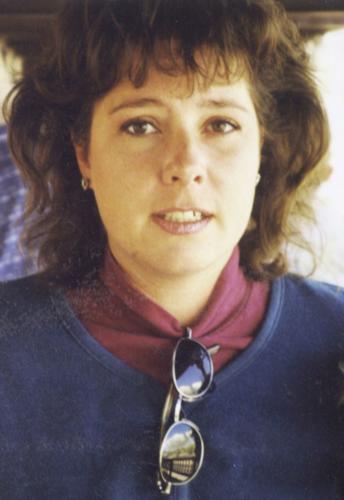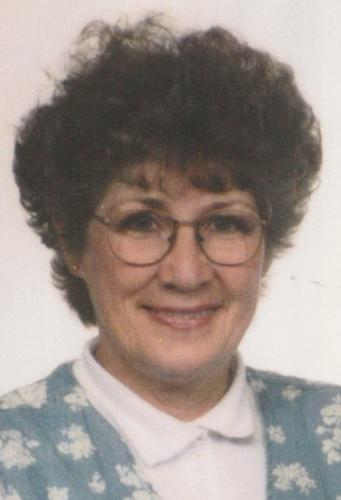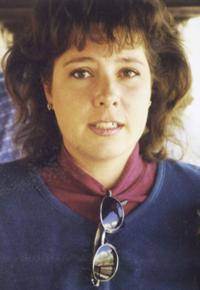In the years after Linda Watson died in 2000, her ex-husband tried to carry on a semblance of a normal life in and around Tucson, even as suspicion shadowed him.
He kept his job with the Tucson Fire Department and moved up the ranks.
His new wife had a baby.
But all of Tucson knew that David Watson was being investigated in Linda’s disappearance. The motive that Pima County Sheriff’s Department investigators quickly focused on was a custody dispute over the divorced couple’s then-4-year-old daughter, Jordynn.
They didn’t have enough evidence until four days ago to arrest Watson and accuse him of murder — in Linda’s death and in the 2003 deaths of Linda’s mother and her mother’s friend. But in the intervening years, a trio of older women helped keep him from carrying on a normal life and asserting control the way he wanted, the way many domestic abusers want. One paid for her resistance with her life, investigators allege.
That was Marilyn Cox, Linda Watson’s mother, who would not let anyone forget that Linda had disappeared and openly pointed the finger of suspicion at David. In court filings, Cox tirelessly pursued the right to have unsupervised visits with Jordynn, her granddaughter, and she openly said what everyone was thinking — that David was responsible for Linda’s disappearance.
Court filings tell part of the story. In January 2003, Cox won a judge’s order saying she must be able to have unsupervised visits, despite David Watson’s objections. In April, the judge responded to more filings and issued a follow-up order reinforcing the decision. On May 7, David Watson called Cox and said she could have an unsupervised visit with Jordynn — her first, said Chief Deputy Chris Nanos of the Sheriff’s Department.
Cox dropped off the girl at David Watson’s home and returned to her northwest-side home — the same home from which Linda had disappeared. In the driveway she and a friend who accompanied her, RéNee Farnsworth, were gunned down. Authorities now say Watson did it.
“It was a total setup,” Cox’s sister, Pat Hinkle, told me Tuesday.
During Cox’s attempt to get unsupervised visits, she had an unlikely ally, the second courageous woman in this story. David Watson’s mother, Christina Blanton, fought alongside Cox for visitation rights and continued after Cox was gunned down. But David Watson resisted her, too, trying to keep control, arguing that Jordynn didn’t like the required visits and should have only joint visits.
In February 2005, a judge recognized the conflict, ruling that “the time spent with her grandmother is not harmful to Jordynn, but the ongoing conflict among the adults is emotionally trying for her.”
Finally, on March 24, 2005, Blanton gave up. A court filing from that date says Blanton “advises the court and all parties that she is withdrawing her petition requesting grandparent visitation and leaves the future in God’s hands with the full knowledge that it cannot be in better hands.” She died in 2011.
But another woman was keeping up the resistance to the man she was sure had committed three murders — Pat Hinkle, Cox’s sister. When Cox died in 2003, Hinkle took over payments on the house that Linda Watson disappeared from and that Cox moved into, in the 2600 block of West Curtis Road.
“I wasn’t going to let him get the house,” Hinkle said. “I wasn’t going to let him compound what he’d already done and walk away with a bigger smile.”
While taking care of the belongings in the house, Hinkle came across an insurance policy on her sister’s life. The listed beneficiary was her sister’s daughter, Linda Watson. Rightfully, the next in line to receive the payout would be Jordynn, so Hinkle fought to ensure that David Watson didn’t get to manage that account on his daughter’s behalf.
David Watson tried to keep Hinkle out of the conservatorship of the money, but in a 2009 filing, Hinkle’s attorney said Cox and Linda Watson “would never have agreed to allow David Watson to serve as conservator of these funds.”
The fight went on. David Watson couldn’t have control as long as Hinkle was carrying on the resistance.
I asked Ed Mercurio-Sakwa about the urge to control displayed by many abusers, especially men.
“Not only is it typical, but it really is at the heart of what domestic violence is,” said Mercurio-Sakwa, CEO of the Emerge Center Against Domestic Abuse in Tucson. “The heart of domestic violence is exerting power and control over somebody else. Sometimes it comes out in physical violence, but sometimes it doesn’t.”
When an abuser is exerting control, he said, the important thing is not to stay quiet.
“Say anything,” he said.
Confronted by a man now accused of three murders, these women refused to be silent.









